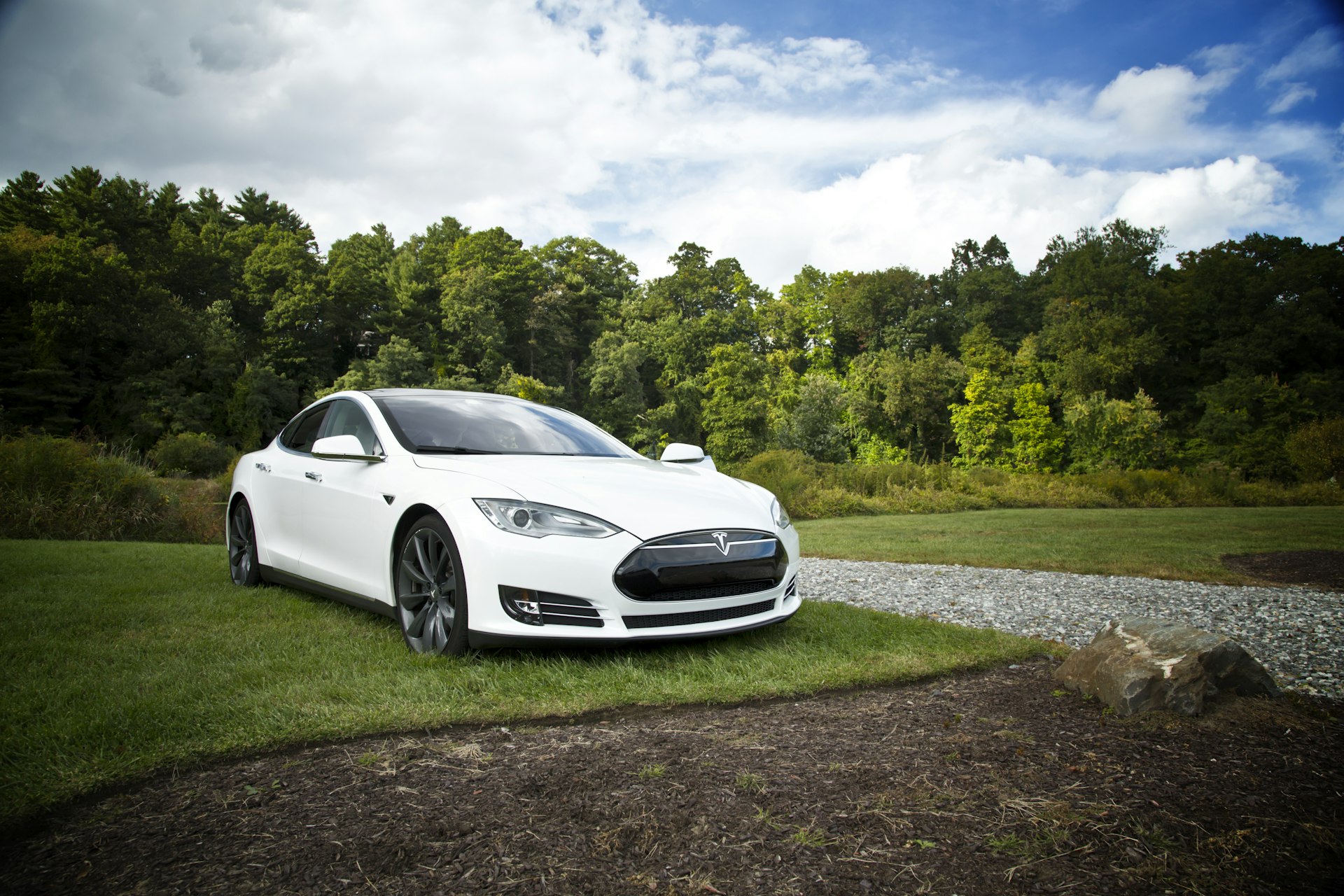Driving Growth: Proven Digital Transformation Strategies for the Automotive Industry

Photo by noir. on Unsplash
Introduction
The automotive industry is undergoing a profound digital transformation, redefining every aspect from vehicle design and manufacturing to sales and marketing. Today’s leading automakers and dealerships harness cutting-edge technologies to streamline operations, enhance customer experiences, and future-proof their businesses. This article explores proven strategies for digital transformation in the automotive sector, offering step-by-step guidance, real-world examples, and actionable pathways for industry professionals seeking sustainable growth.
1. Digital Transformation in Vehicle Design
Automotive product design is rapidly evolving as consumer expectations shift toward smart, connected, and sustainable vehicles. Manufacturers now integrate advanced technologies such as autonomous driving systems, alternative fuel solutions, and predictive maintenance features into their vehicles. For example, Hyundai’s Bluelink platform utilizes 5G and Bluetooth Low Energy, enabling remote start, real-time diagnostics, and secure in-car payments. These innovations not only improve vehicle performance but also increase driver satisfaction-over 80% of users report higher satisfaction with digitally enhanced vehicles [1] .
To implement digital design strategies:
- Adopt machine learning tools for analyzing historical vehicle data and running simulations to optimize design cycles.
- Collaborate with technology partners for enhanced connectivity and feature integration.
- Invest in sustainable design practices to meet emerging mobility trends such as ride-sharing and car-sharing.
Challenges may include integrating legacy systems and upskilling design teams. Overcoming these barriers requires a phased approach and ongoing training.
2. Smart Manufacturing and the Rise of IoT
Manufacturing is at the heart of automotive digital transformation. The shift toward smart factories-where IoT devices and machine learning algorithms optimize every step-has accelerated. According to Capgemini Research, nearly a quarter of automotive plants aimed to become smart factories by 2022, with significant investments in automation [1] . BMW’s smart factories, powered by NVIDIA-enabled robots and IoT neural networks, demonstrate how real-time adaptation enhances workflow, reduces downtime, and boosts productivity.
Steps to modernize automotive manufacturing:

Photo by Paul Steuber on Unsplash
- Deploy IoT sensors for predictive maintenance and real-time quality control.
- Utilize AI-driven robotics to optimize assembly and logistics.
- Integrate data analytics platforms for improved schedule planning and resource management.
Manufacturers must address cybersecurity, data interoperability, and workforce adaptation. Solutions include robust data governance policies and partnerships with technology providers.
3. Reinventing Auto Retail through Digital Ecosystems
Auto retail is being fundamentally reinvented as digital platforms empower buyers and streamline dealership operations. Connected technology ecosystems make research, comparison, and purchase faster and more transparent. Millennial and Gen Z buyers are driving this trend; by early 2025, 31% of Millennials and 21% of Gen Z were the most likely demographics to purchase vehicles, according to TransUnion [2] . Leaders in auto retail bridge online and in-person experiences, turning buyers into brand advocates.
Implementing a connected retail strategy:
- Offer comprehensive online platforms for vehicle research, financing, and virtual showrooms.
- Adopt CRM systems for seamless customer data integration and personalized service.
- Combine digital and physical retail for a unified, rewarding buying experience.
Dealerships must train staff to use digital tools and ensure online platforms are secure and user-friendly. Consider collaborating with established technology vendors for smoother deployment.
4. Software-Defined and Autonomous Vehicles
The rise of software-defined vehicles (SDVs) is transforming operations, from basic controls to infotainment and diagnostics. These vehicles require continual software updates to deliver cutting-edge performance. Honda’s partnership with Amazon Web Services exemplifies the drive to accelerate SDV adoption by improving data collection and update processes [4] .
To transition toward SDVs and autonomous vehicles:
- Integrate robust capacity planning software to align manufacturing schedules with software release cycles.
- Invest in sensor and AI technologies for higher automation levels.
- Collaborate with cloud service providers for scalable update infrastructure.
Potential obstacles include regulatory compliance, safety assurances, and consumer trust. Address these by staying informed about evolving standards and communicating transparently with customers.
5. Digitalization of Sales and Customer Experience
Digital tools have dramatically changed car buying and ownership. Consumers can research vehicles, compare prices, secure financing, and even complete purchases online. By 2032, the global automotive AI market is projected to reach $405.3 billion, reflecting the sector’s rapid technological evolution [3] .
Actionable strategies for digital sales:
- Implement AI-powered chatbots and virtual assistants for customer support and lead generation.
- Leverage data analytics to personalize marketing and sales offers.
- Offer online scheduling for test drives and service appointments.
While digitalization streamlines processes, it’s important to ensure data privacy and maintain high-touch customer service.
6. AI and Automation in Automotive Marketing
Artificial intelligence is revolutionizing automotive marketing. By 2025, brands like BMW, Ford, and Mercedes-Benz use AI to personalize content, predict consumer preferences, and automate customer interactions [5] .
Marketing teams can:
- Deploy AI for customer segmentation and targeted campaigns.
- Automate routine tasks such as ad placement and lead scoring.
- Utilize chatbots for real-time, personalized buyer support.
Barriers include initial cost and system integration. Overcome these by piloting new technologies and measuring ROI.
How to Access Digital Transformation Resources
Automotive professionals seeking to implement digital strategies can:
- Connect with technology partners such as cloud service providers, IoT platform vendors, and AI solution developers.
- Participate in industry forums and conferences, such as the Consumer Electronics Show (CES), for the latest trends and best practices.
- Consult resources from reputable organizations like Capgemini, TransUnion, and major OEMs for market data and technology recommendations.
- Search for “automotive digital transformation” on official industry association websites or contact local technology consultants for tailored advice.
Always verify the credibility of vendors and platforms before committing. For government programs or regulatory guidance, visit official agency websites or consult industry-specific regulatory bodies.
Conclusion and Next Steps
Digital transformation is redefining the automotive landscape, offering unprecedented opportunities for growth, efficiency, and customer satisfaction. By embracing digital product design, smart manufacturing, connected retail, software-defined vehicles, and AI-powered marketing, industry leaders can stay ahead of the curve. For those ready to begin, start by auditing your current technology stack, identifying gaps, and prioritizing investments that align with your strategic goals. Consult with reputable technology partners, join industry networks, and continually educate your team on emerging trends. The future of automotive is digital-take the first step today.
References
- [1] PAM+HQ (2024). Digital Transformation In The Automotive Industry: Use Cases & Examples.
- [2] NetSol Technologies (2025). Reinventing Auto Retail for 2025.
- [3] Automotive Training Network (2025). Digitalization in the Automotive Industry: A Game Changer.
- [4] Epicflow (2025). Key Technology Trends in the Automotive Industry in 2025.
- [5] Ronn Torossian (2025). The Future of Automotive Marketing: How Digital Transformation Will Define the Industry in 2025.
MORE FROM discountdiscover.com













